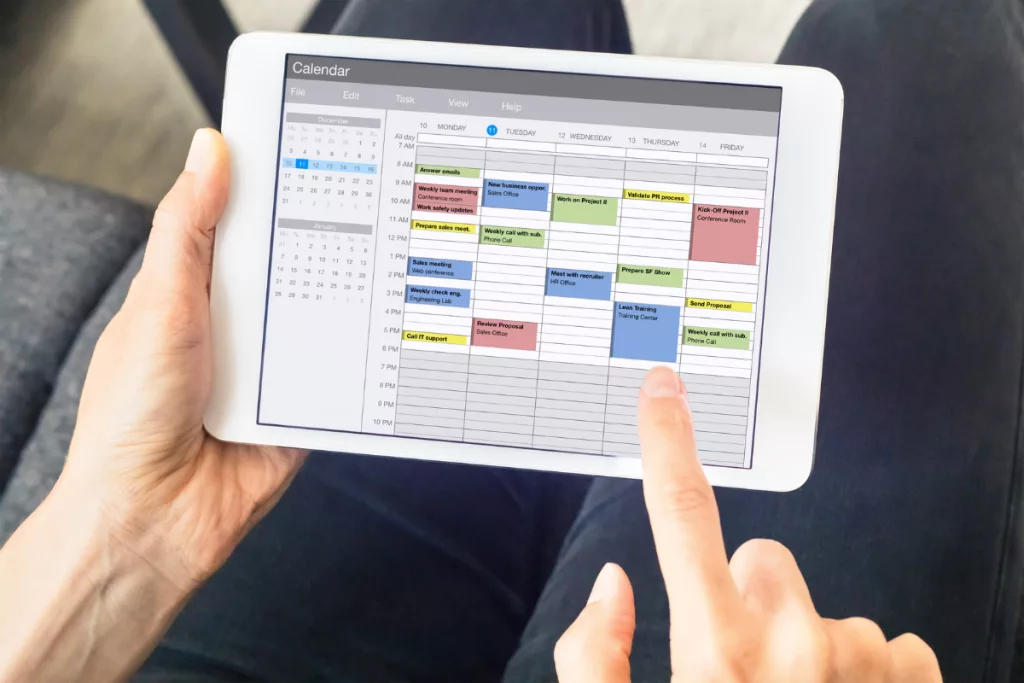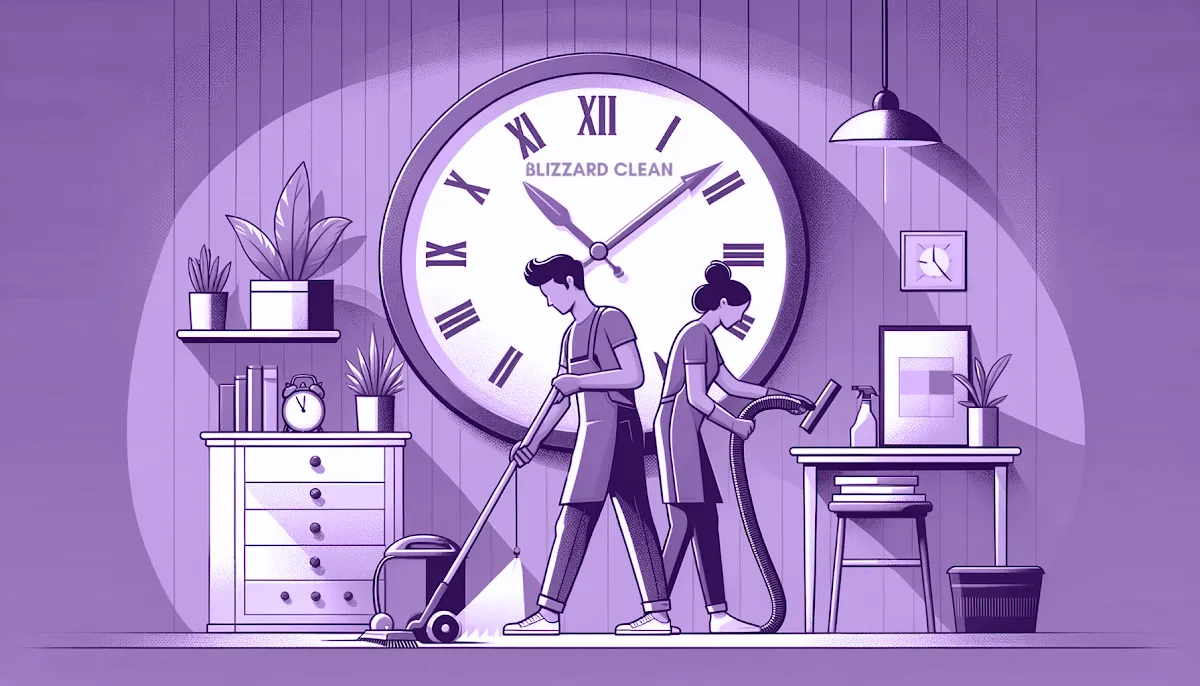Do you have “enough time in the day” to complete your housekeeping and cleaning tasks? Most of us might dispute that, overwhelmed by to-do lists that never seem to end. This is where effective time management comes into play. Why is time management important? Time management is no longer an office cubicle buzzword. Instead, it is a necessary lifestyle approach that can make your chores less intimidating and your life more organized.
Time management is a crucial skill in every aspect of life – personal, professional, and, yes, even when it comes to maintenance and cleaning. People often avoid or delay these tasks due to a perceived lack of time, leading to a constant backlog of chores.
Understanding the importance of effective time management in this sphere can revolutionize how one views and handles maintenance and cleaning tasks.
The Role Of Time Management In Upkeep And Cleaning
Firstly, timely maintenance and cleaning are paramount to sustaining a high standard of living. Regular upkeep keeps your surroundings aesthetically pleasing and hygienic. By managing time efficiently, you can schedule regular cleaning sessions, thus preventing the accumulation of dirt, dust, and clutter. This leads to healthier, more enjoyable living and working environments.
Secondly, preventative maintenance is an effective strategy to deal with potential issues. By allocating time routinely for these tasks, you preemptively identify and address minor problems before they escalate. For instance, a small leak, if ignored, could turn into significant water damage involving high costs and stressful repairs.
By bundling similar tasks together and planning them smartly, you increase your efficiency. For instance, focusing one day on deep-cleaning the kitchen while another on the living area, rather than sporadically jumping between different areas, can make the entire process more practical and less exhausting.
When maintenance and cleaning activities are planned and executed efficiently, you can save considerably on costs. Dealing with minor issues in time avoids large-scale repairs and replacement costs. Similarly, regular cleaning increases the lifespan of appliances and other household items, reducing the frequency of replacements.
Finally, a clean, clutter-free space has a positive impact on your mental health. Disorder and mess can increase stress and anxiety levels, while a tidy space evokes a sense of calm and control.

Tips To Improve Time Management In Upkeep And Cleaning
Manage your time, don’t let it manage you, the mantra we all try to live by but, more often than not, struggle with. The constant juggling of work, study, and personal life demands renders a schedule marred by poor time management. Such struggle is not only confined to the office or classroom but also extends to households in the realm of upkeep and cleaning.
In this segment, let’s dive deeper into various time management strategies and techniques. These methods will not only help you better manage your time but also greatly improve productivity.
Time Blocking
A tried and tested time management method, time blocking involves allocating specific chunks or blocks to different tasks throughout the day. This technique lets you focus on one task at a time, making your routine manageable and efficient. It’s an excellent method to reign control of your time.
Time Tracking
Have you noticed that upkeep tasks tend to take longer than expected, leading to a lot of wasted time? You are not alone. Time tracking aids in identifying how much time you spend on a task—forcing you to become aware of inefficiencies, distractions, and even underestimations in how long tasks truly take.
Project Management in Cleaning
In essence, house cleaning and maintenance is a project—a series of tasks with a clear beginning and end. Incorporating project management strategies into your cleaning routine can significantly improve your time management. For instance, you can break down the project ‘clean house’ into smaller tasks like ‘clean kitchen’, ‘vacuum living room’, etc., to make the process more manageable and less overwhelming.
Prioritize and Delegate
As part of effective time management strategies, learn to prioritize and delegate tasks. Urgent tasks may need immediate attention, while others could be scheduled for later. If you share the house with roommates’ families, or even if you have the resources to hire help—delegate. This spreads the work, gets things done quickly, and everyone shares the responsibility.
Be Proactive, Not Reactive
Preemptive action saves time. Spot a leak, a speck of mold, or some dust? Tackling maintenance and cleaning tasks as soon as they arise prevents the snowballing of minor issues into major problems—successful time management in practical action.
Harness Technology
From time-tracking tools to reminder apps and project management software, technology could become your best time management ally. These tools let you schedule reminders, organize tasks, estimate time, and track progress, helping you use time more effectively.

Time Management Tips for Students
For students facing the challenge of juggling academics, part-time jobs, and living alone, time management can be a lifeline. Study breaks can also be upkeep breaks—use the intermissions to tidy up your space. Also important is to declutter regularly—less clutter means less time spent on cleaning!
Incorporate The ’12 Time Management Strategies
Scientific research has provided us with a roster of proven strategies, renowned as the ’12 time management strategies’, which can be applied to cleaning and upkeep as well.
- Set goals
- Prioritize
- Use a to-do list
- Organize work
- Consolidate tasks
- Minimize interruptions
- Time block your tasks
- Limit multitasking
- Have a steady work routine
- Delegate appropriately
- Nurture healthy habits and stress management
- Use time management tools
Learning to use time management strategies can drastically boost productivity and efficiency. It allows you to accomplish your tasks in a structured manner, allocating different time frames for cleaning, leisure, and work, ultimately minimizing stress.
Implement each tip gradually, making small but consistent improvements to your time management skills. Remember, the goal is not simply to become busy but more productive, working smarter to enhance productivity and maintain a clean and joyous living space.
Cleaning Tips To Improve Time Management and Productivity
Here are some tips for managing your time more effectively while performing maintenance and cleaning tasks:
- Create And Follow a Cleaning Schedule: One of the most successful time management strategies is using a cleaning schedule. This could be viewed as a project management tool for your cleaning tasks. Setting a specific time for tasks during your available time, such as dusting on Mondays, vacuuming on Tuesdays, and so on, puts you in better control of your time. This sense of structure, akin to time blocking, guides you on how to spend your time, improves your overall time management, and boosts productivity.
- Break Down Tasks: Effective time management strategies and techniques also involve breaking down tasks into more minor, manageable duties. This echoes the project management philosophy, where complicated projects are broken down into more straightforward tasks. So rather than tackling the whole house in one day, aim to handle one room or specific zone per day. Also, your to-do list should include these manageable tasks, an approach that trims the time it takes to complete tasks and saves valuable time.
- Implement a ‘Clean as You Go’ Policy: One of the time management habits that can save heaps of time is the ‘Clean as You Go’ policy. By managing your time better following this policy, you control your time through direct action. Rather than spending less time later on a piled-up mess, you incrementally dedicate time to keep things tidy.
- Utilize The Right Tools And Products: Just as various tools and techniques are essential for effective project management, the right cleaning equipment is critical for efficient time management. Investing time to evaluate the best tools and products can help you use your time more effectively when cleaning, turning the painstaking time given to cleaning into an optimized process.
- Delegate Tasks: Just like in project management, where tasks are delegated to different people, if you live with others, it’s prudent to apply the same principle when cleaning. This way, everyone learns how to manage their time and contribute to the cleaning process. It’s a time management tip even students can benefit from.
Treat your time as a valuable resource, especially when considering cleaning tasks and identifying why time management is crucial in upkeep. Efficient cleaning leads to improved productivity, decreased stress, and the ability to maintain more satisfying living conditions. These tips help you establish a manageable cleaning routine to keep your spaces and time well-managed.

